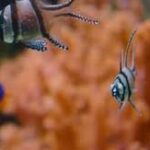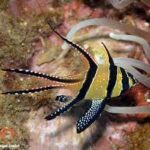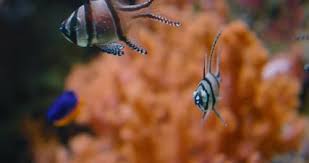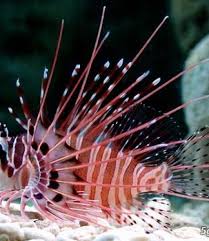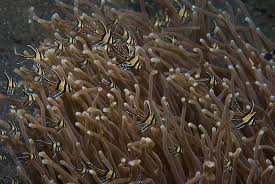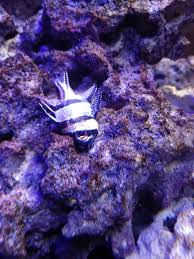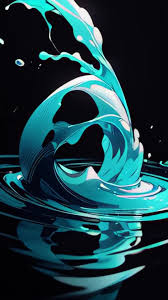
In Chinese culture, the dragon is not only a symbol of power, strength, and good fortune but also deeply connected to themes of immortality and eternal life. Throughout history, the dragon has been portrayed as a divine, celestial creature with the ability to transcend the limitations of the human world, representing both life and death, creation and destruction. This unique relationship between dragons and immortality is woven into various myths, folklore, and religious beliefs in China, shaping how immortality is perceived and pursued in Chinese tradition. This article explores the fascinating connection between dragons and immortality in Chinese culture, examining their roles in mythological stories and the enduring belief in their power to grant eternal life.
1. The Dragon as a Symbol of Immortality
In Chinese mythology, the dragon is often seen as a creature that resides in the heavens or under the sea, where it has the ability to control natural forces such as water, wind, and weather. As a symbol of celestial power, the dragon is associated with the concept of eternal life, as it is believed to have the ability to regenerate itself and never age.
Dragons are considered immortal beings because they transcend the natural laws of aging and death. This symbolism is closely tied to the Taoist concept of achieving immortality through spiritual cultivation and harmony with the universe. In Taoism, the dragon is a representation of the life force (qi) that flows through all living things, and its ability to remain eternal reflects the possibility of attaining immortality through the cultivation of one’s spiritual energy.
2. The Myth of the Dragon Gate and the Transformation of Carp
One of the most famous Chinese myths linking the dragon to immortality is the Legend of the Dragon Gate. According to this myth, a carp that successfully swims up the waterfall at the Dragon Gate in the Yellow River is transformed into a dragon. This story symbolizes the idea of transcendence and the ultimate reward of immortality for those who demonstrate perseverance, strength, and the ability to overcome challenges.
The Dragon Gate myth is often used as a metaphor for spiritual enlightenment and the journey towards immortality. The carp’s transformation into a dragon represents the achievement of higher consciousness and eternal life, signifying the ultimate victory over the obstacles of life. The myth also teaches that immortality is not easily attained but requires great effort and determination.
The dragon’s role in this myth reflects its status as a powerful, divine creature capable of bestowing immortality upon those worthy of its grace. The Dragon Gate myth emphasizes the belief that only those who pass the ultimate test of strength, will, and virtue can gain access to the immortality symbolized by the dragon.
3. The Role of Dragons in Taoist Immortality Practices
Taoism, one of the oldest philosophical and spiritual traditions in China, has a strong connection to the pursuit of immortality. In Taoist teachings, the dragon is often seen as a symbol of the Tao, the fundamental principle that flows through the universe, creating and connecting all things. Taoist immortality practices are centered on cultivating this life force, or qi, to achieve longevity or even eternal life.
The dragon plays a significant role in Taoist rituals and alchemy, often seen as a guiding force in the search for immortality. Taoist immortals, known as xian, are believed to have attained a state of immortality through the mastery of specific practices such as meditation, alchemy, and the cultivation of internal energy. The dragon is often depicted in Taoist art and literature as the ultimate symbol of these immortals, representing their ability to transcend physical death and achieve a state of eternal existence.
Some Taoist legends speak of immortal beings who possess the power to transform into dragons, further emphasizing the dragon’s connection to immortality. These immortal dragons are said to roam the heavens or the sea, eternal in their power and unbound by the limitations of the mortal world.
4. The Immortal Elixir and the Dragon
Another significant aspect of the connection between dragons and immortality in Chinese culture is the immortal elixir. In many myths and legends, dragons are closely associated with the elixir of life—a magical potion that grants eternal youth and vitality. According to these stories, dragons are the guardians of this precious elixir, which is often hidden in sacred mountains or deep underwater.
The most famous tale of the immortal elixir involves the legendary Queen Mother of the West (Xi Wangmu), a Taoist goddess who is said to reside in the Kunlun Mountains. She is often depicted with a dragon or accompanied by dragons, symbolizing her connection to eternal life. The Queen Mother of the West is believed to possess the elixir of immortality, which she occasionally bestows upon those who are deemed worthy. Dragons, in this context, serve as protectors and messengers, delivering the elixir to those who seek it with purity of heart and dedication to spiritual growth.
This association between dragons and the immortal elixir further reinforces the dragon’s role as a symbol of eternal life, acting as both a guardian and a guide to immortality.
5. The Dragon’s Role in Chinese Imperial Symbolism
In Chinese imperial culture, the dragon is often linked to the concept of immortality through its association with the emperor, who was considered the Son of Heaven and believed to be granted a divine, eternal mandate to rule. The emperor’s throne was symbolized by the dragon, and his imperial authority was often referred to as “the dragon’s authority.” The emperor’s longevity and the prosperity of the empire were thought to be directly related to the strength and favor of the dragon.
The dragon’s representation on imperial regalia, clothing, and architecture reflected the emperor’s connection to the divine and his ability to maintain order and harmony, thus ensuring the immortality of the empire’s greatness. The dragon was seen as a divine protector, not only of the emperor but also of the country, ensuring the eternal prosperity and stability of the empire.
6. Conclusion: The Dragon as the Embodiment of Immortality
The dragon’s connection to immortality in Chinese culture is multifaceted and deeply ingrained in the mythology, spirituality, and symbolism of the nation. From the transformative powers of the Dragon Gate to its role as a symbol of Taoist immortality, the dragon represents the ultimate connection between life and death, the mortal and the eternal. Through its presence in myths, religious practices, and imperial symbolism, the dragon continues to embody the ancient Chinese pursuit of immortality—a pursuit of spiritual transcendence, divine protection, and eternal vitality.
In the eyes of the Chinese people, the dragon remains not only a symbol of strength and power but also an enduring representation of the possibility of immortality, both in the spiritual realm and in the continuity of life itself. Its presence in Chinese culture is a reminder of the potential for transcendence, renewal, and eternal life, inspiring generations to seek higher truths and embrace the transformative power of the dragon.
